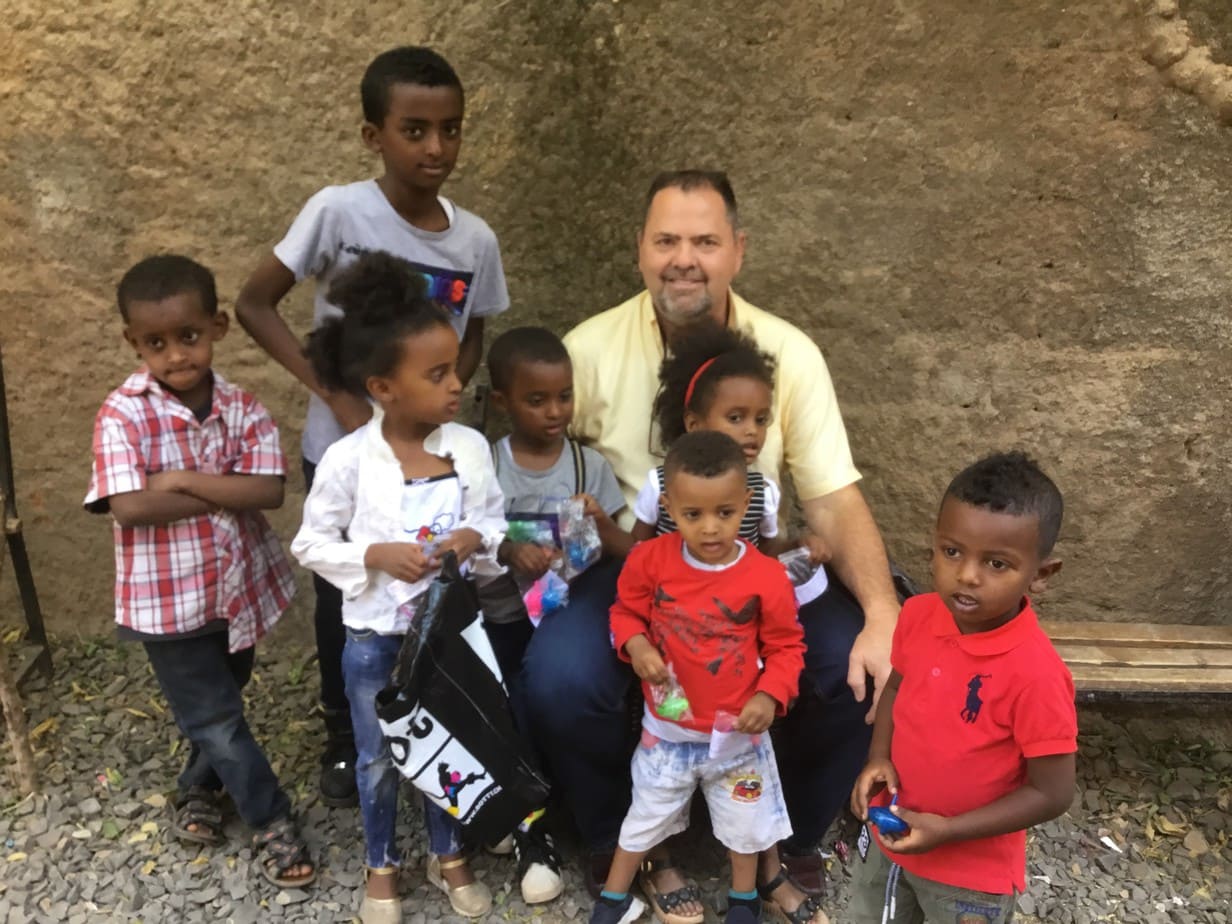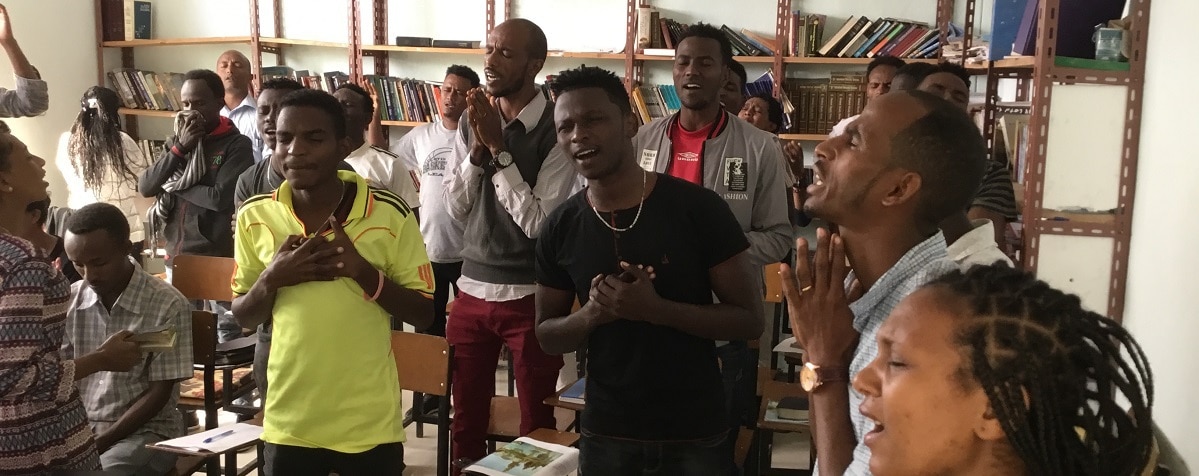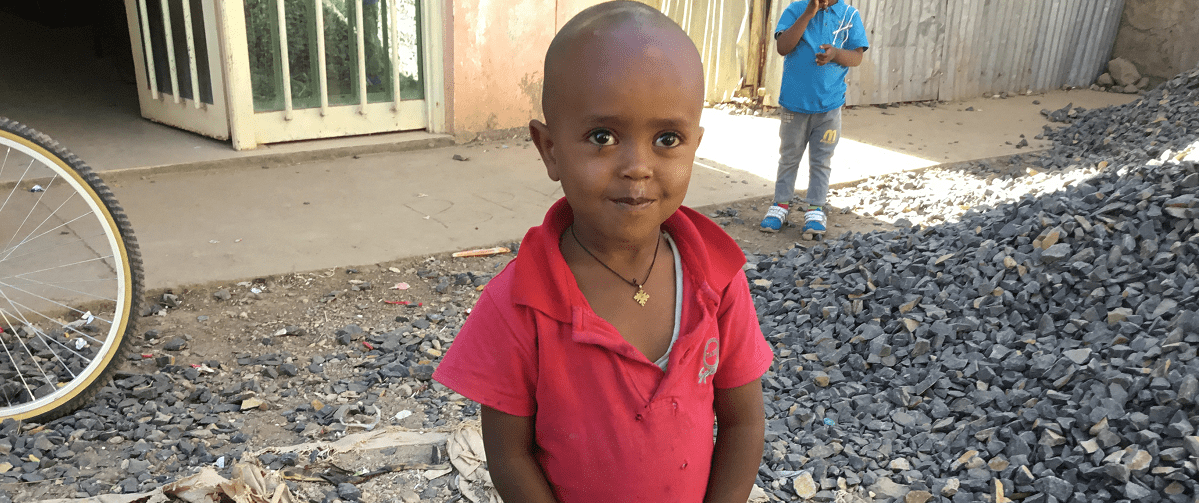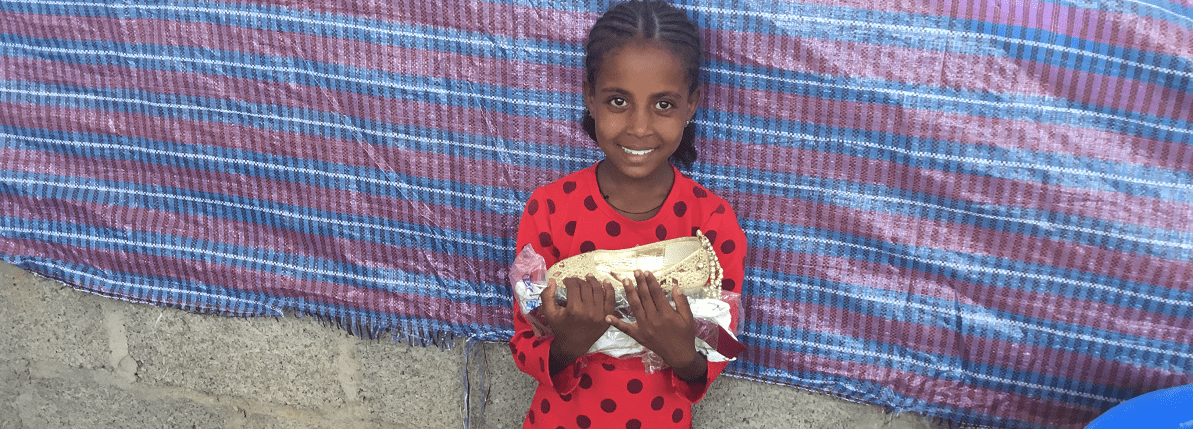That question was asked of Christ by a man who was trying to excuse himself of the responsibility to help those whom he did not know personally. Christ answered that question by telling him the story of The Good Samaritan. The Savior’s point was clear. If you know of someone in need and do nothing to help, you have fallen short of what God would have you be as a good neighbor.
In October of this year, four men from the Association traveled half-way around the world to offer help on behalf of your church and all the churches in Blue River-Kansas City Baptist Association. Dr. Hammer, along with Jim Tompkins, pastor at Pleasant Prairie, Matt Sprink, Pastor of Disciple Making at FBC, Blue Springs and Barry Sanders, deacon and layman from First, Blue Springs fl ew to Addis Ababa, Ethiopia for the purpose of discovering how our churches can help the refugees that are pouring into that country daily from Eritrea and Somalia.
Dr. Hammer and Bro. Tompkins traveled north to the Eritrean camps while Bros. Sprink and Sanders went south to the Somalian camps. They took with them over $8,000 that had been donated by our churches along with over 400 birthing kits to be distributed in the camps. The money was used to purchase needed supplies and materials in country for delivery to the camps.
Sprink and Sanders went to visit the Somalian Refugee camps near Dolo Ado, with the primary aim of humanitarian relief. Dr. Hammer and Tompkins were seeking out long-term evangelistic opportunities for the churches of the Association and journeyed north to Shire (Inda Selassie), hub of the Tigray Refugee Camps for Eritreans. The Somali camps contain over 166,000 people in four locations, all in the desert of southern Ethiopia. The people are almost all Muslim, so witnessing was out of the question unless you were asked by one of the refugees about your faith. To overtly share the gospel in the camps was forbidden and could lead to the team being asked to leave. The three Eritrean camps in the Tigray region were more open to the gospel and included believers. The Ethiopian government allowed Christian worship in those camps. There are currently a total of 46,256 Eritrean refugees in Ethiopia, accounting for 28% of the overall refugee population in the country.
The current population consists predominantly of young educated men targeted for universal military conscription in Eritrea. Recently there has been an increased infl ux of unaccompanied minors crossing the border on their own, with a total of 2,051 Eritrean unaccompanied minors now registered in the country, 84% of whom are boys.
There are an overwhelming number of children who are left on their own, without supervision. Many are not in school because of no uniform, no money for fees or supplies, etc. The living conditions are cramped, and appear to be dirty and even unsanitary. Meat is rare, with most meals consisting of grains, vegetables and potatoes. The unaccompanied minors appear to pool their resources and cook for each other in communal style. The children are open to outside visitors, and there seems to be no restriction on sharing the gospel. There are three churches in camp, an Orthodox, a Mosque, and an Evangelical Church.
There is no school in the camp, and children must walk 6 kilometers to a nearby town. There the school is overwhelmed with students, and the pupil to teacher ratio is 1:40 and as high as 1:76. The Mai Ayni camp is a busy place, with people constantly on the move. Some have started trading businesses, and there was a store, a cafe and a beauty salon. The children were quite excited to see the tennis shoes bought by our team. Most of the clothes were dirty and worn, and the children had, at most, one change of clothes.




